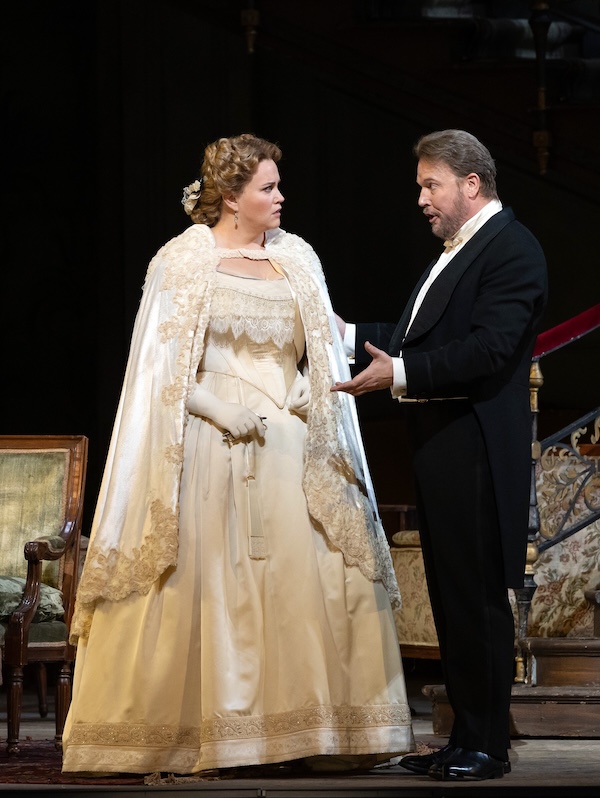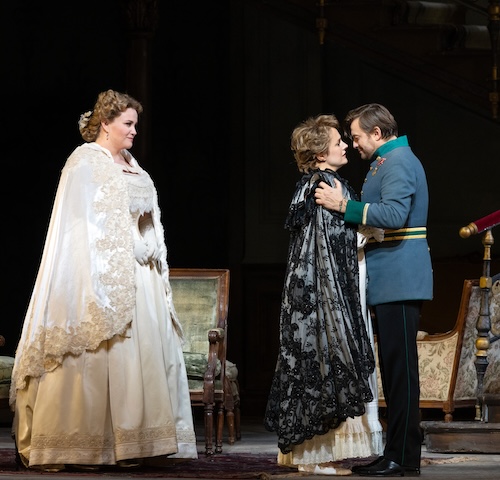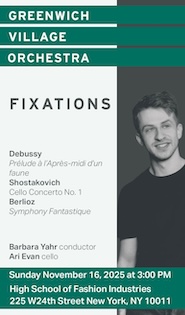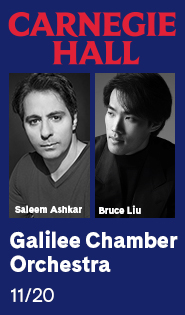Met debutants light up a debutante’s story in Strauss’s “Arabella”

In imperial Vienna in the 1860s, everybody waltzed, from the salons of the aristocracy to the glittering parties of the wealthy bourgeoisie to the Cabdrivers’ Ball. That’s where the title character of Richard Strauss’s romantic comedy Arabella went for one last night of girlish fun before her marriage to a rich landowner from Croatia. This being opera, complications ensued.
But not many complications, and all is quickly resolved in favor of the lovers who were meant for each other. In the world of Strauss and his longtime librettist Hugo von Hofmannsthal, that wisp of a plot was enough excuse for three hours of lush orchestration and lovely singing.
The Metropolitan Opera’s run of Arabella opened Monday night, with a cast dotted with auspicious company debuts in roles from Arabella’s sister to her three unsuccessful suitors to the cabbies’ mascot, the party girl referred to only as the Fiakermilli.
Soprano Rachel Willis-Sørensen characterized Arabella as quietly sticking to her goal of finding “the right one” as lovesick swains competed for her attention and her debt-ridden parents saw her mainly as a marital ATM. Not too quietly, of course, with all those Straussian high notes sprinkled through her part, which her pleasant, even voice rose to without strain.
Her delicately-phrased monologue “Mein Elemer,” closing Act I with the opera’s only real set piece for its lead singer, provided a welcome pause in the schemes and misunderstandings for a glimpse of a girl thoughtfully contemplating her future.
Happily for Arabella, “the right one” turned out to be her father’s old war buddy Mandryka, to whom dad hoped to marry her off—or rather, the buddy’s nephew, who opened the letter to his deceased uncle and fell so in love with the portrait of Arabella inside that he (it says here) “sold one of his forests in Slavonia” to make the trip to Vienna and vie for her hand.
As the younger Mandryka, Tomasz Konieczny sang in an appropriately rugged bass-baritone and lurched around the stage, overplaying the country bumpkin just a bit. His moments of passion—the first kiss with Arabella, smashing a chair in rage at her alleged infidelity—sometimes came across as more stagey overreach than spontaneous.

On the other hand, Pavol Breslik’s tightly-wound tenor vividly conveyed the amorous frustrations and confusions of the young lieutenant Matteo, in love with Arabella and loved in turn by Arabella’s sister Zdenka, who he thinks is a boy named Zdenko, and with whom he has a tryst in the dark thinking it’s with Arabella. (I guess we needed three hours for this after all.)
Making her Met debut as Zdenka, soprano Louise Alder wore boy’s clothes until her big reveal in a nightgown in Act III and sang in buttery tones that were credibly boyish. But she also floated some beautiful soft high notes and made that uniquely Straussian blend of female voices with Willis-Sørensen in their Act I duet.
It was a good night for hearing the words, as the entire cast projected clearly into the house, with discreet yet colorful support from conductor Nicholas Carter and the Met orchestra. The champion in this regard was perhaps bass Brindley Sherratt as Arabella’s father, Count Waldner, whose vocal focus and crystalline diction made all too clear the trouble his character was in because of his gambling habit.
As his long-suffering wife the Countess, mezzo-soprano Karen Cargill sang expressively and was a model of self-aware stage presence in a production often characterized by random movement and awkward blocking.
In her Met debut, coloratura soprano Julie Roset as the Fiakermilli sparkled her way through the ballroom act with delicate, uncanny high notes. Mandryka’s revenge flirtation with her while angry at Arabella was one of many dramatic points in this production that didn’t quite come off.
Also making a Met bow was Evan LeRoy Johnson, erect and strong-voiced as Arabella’s most persistent suitor Elemer. His fellow debutants Ricardo José Rivera and Ben Brady gave good accounts of themselves as suitors Dominik and Lamoral.
Eve Gigliotti had an effective comic turn as the Fortune Teller, giving Countess Waldner fits in the opening scene as she accurately predicted the opera’s events.
Conductor Carter and the orchestra helped set the mood during moments of unfocused acting and direction, and also put a plush Straussian cushion under the voices without covering them. However, they had serious problems with intonation and ensemble in the boisterous Prelude to Act III, a picker-upper that nearly came a cropper.
Arabella runs through November 29. metopera.org


